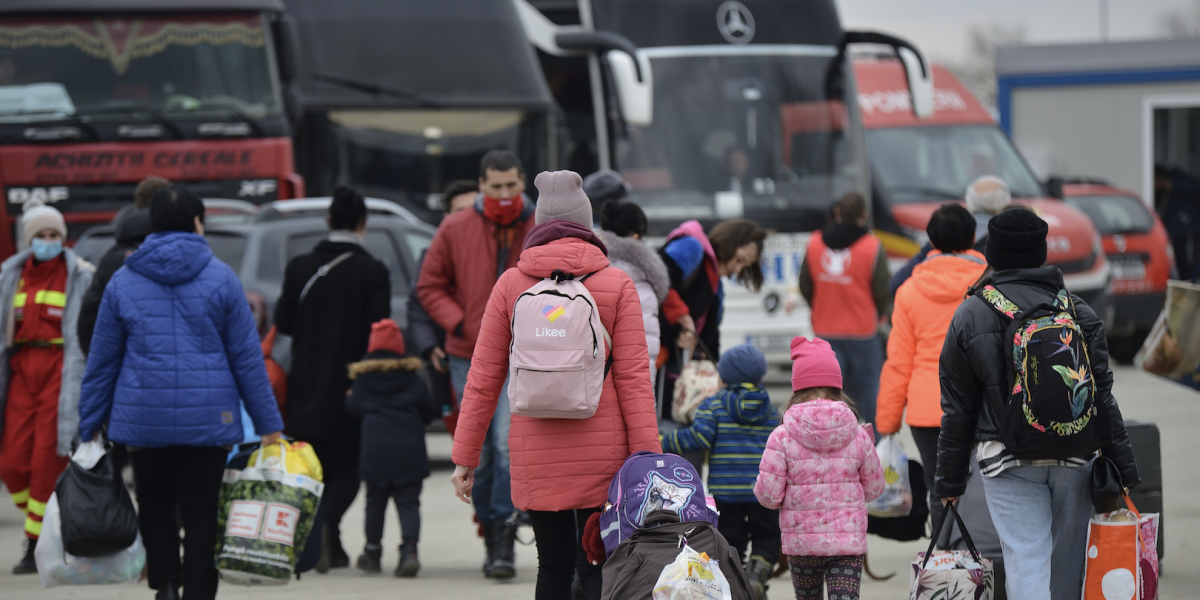The Global Response for Ukraine: A Model for All Crises
21 March 2022

Russia’s invasion of Ukraine has forced over 3 million people to leave their homes. The global response has been overwhelmingly supportive and hospitable, especially towards those arriving at the borders of Poland, Moldova, Romania, Hungary, and Slovakia.
The European Union has proposed an emergency plan that will allow Ukrainian refugees to live and work in the EU for up to three years. “Europe stands by those in need of protection,” the European Commission president, Ursula von der Leyen recently said in a statement about the plan. The overall sentiment towards refugees from Ukraine is significantly more supportive than that of their Afghan counterparts since the Taliban takeover last August.
Professor Serena Parekh, director of the Politics, Philosophy, and Economics Program at Northeastern University and wrote the book “No Refugee: Ethics and the Global Refugee Crisis,” told Al Jazeera that Europe’s response has been “strong and immediate,” a shift from the lengthy process of a typical global response.
During 2015 and 2016, when hundreds of thousands of Syrians fled their homes as war threatened their lives, Eastern European countries considered the number of refugees “unprecedented and impossible to deal with,” says Parekh. Now, these same countries have made legal exceptions and implemented hospitable policies for Ukrainian refugees.
We need to care about, and support, Ukraine and we also need to remember places like Syria, Afghanistan, and Central America.Millions of people have fled these regions and, with experiences compounded by xenophobia and racism, have not been met with the same level of treatment that white Ukrainians have.
The humanitarian situation in Afghanistan has only increased since the return of the Taliban last summer. Yet, the resettlement process for Afghan refugees has been unbearably slow. In February, The Guardian reported that thousands of Afghan refugees had been stuck in hotels in the UK “after a minister admitted there was no mechanism to move some of them on without losing government support.”
Europe clearly has the strategies and infrastructure to support an influx of people seeking safety, we need to ask more questions about why hostility, xenophobia, and fear still permeate throughout most of the world’s policies and attitudes towards migration.
War is not a circumstance we should come to expect for some regions of the world yet some of the media coverage of Ukraine has enforced this notion. One CBS News Correspondent said Ukraine is “relatively civilized, relatively European,” in comparison to countries like Afghanistan and Iraq. It is hurtful and damaging to suggest a group of people more likely to experience war because of their location, ethnicity, or religion. War should not happen, and its occurrence in any region is not a reflection of the character of the people living there.
The United States seems to have joined together in support of Ukraine and Ukrainian’s forced to flee their homes yet, we are not extending the same sentiment, hospitality, or support to our own neighbors at the U.S. – Mexico border as evidenced by the continued use of Title 42. Put in place by the Trump Administration in March 2020, this policy has been used to deny asylum to those in need of protections and safety. Monday, March 21st, marks two years of Title 42’s enforcement. We must stand in solidarity with and support those seeking safety at our southern border.
“Such unanimous generosity should be the normal political response to any human tragedy,” writes Global Opinions, writer Rokhaya Diallo, for the Washington Post. If we hold political leaders accountable, we can use Europe’s positive response to Ukraine as a blueprint in other times of conflict and displacement going forward.
Pope Francis recently said in response to the war in Ukraine: “God is only the God of peace, he is not the God of war.” We must pray for peace in Ukraine and for peace in every country on earth.



